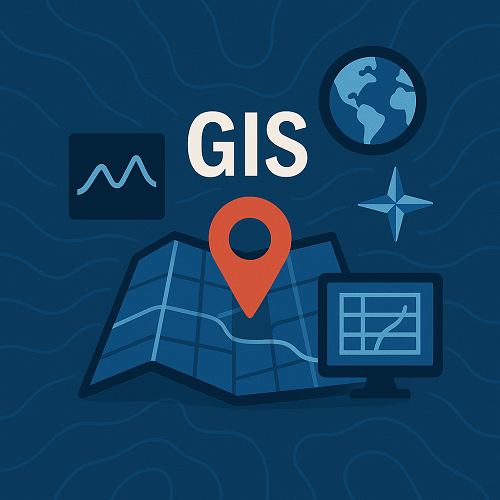Capitalizing on GIS Technology: The Game-Changing Applications Set to Skyrocket Your Business Success
In today’s digital era, businesses are constantly seeking innovative ways to gain a competitive edge. One such technology that has been making waves in the business world is GIS, short for Geographic Information System. This powerful technology has the potential to revolutionize the way businesses operate, helping them make informed decisions, optimize processes, and achieve unprecedented success. In this article, we will explore the game-changing applications of GIS technology and how it can propel your business towards new heights.
Heading: Enhancing Customer Experience and Engagement
Subheading: Utilizing Location-based Services
One of the key applications of GIS technology lies in enhancing customer experience and engagement. By leveraging location-based services, businesses can tap into a wealth of spatial data to deliver personalized experiences to their customers. Imagine being able to provide real-time recommendations based on a customer’s location, preferences, and past behavior. This level of personalization not only enhances customer satisfaction but also increases engagement and drives customer loyalty. With GIS technology, businesses can truly understand their customers and deliver tailored experiences that set them apart from the competition.
Heading: Optimizing Supply Chain Management
Subheading: Streamlining Logistics with GIS
Efficient supply chain management is crucial for any business, and GIS technology can play a pivotal role in streamlining logistics. By integrating GIS into supply chain management systems, businesses can gain insights into the most efficient routes, optimize delivery schedules, and effectively allocate resources. This not only reduces costs but also enhances the overall efficiency of the supply chain. With GIS technology, businesses can make data-driven decisions that ensure timely delivery, minimize disruptions, and maximize operational efficiency.
Heading: Targeted Marketing and Advertising
Subheading: Harnessing the Power of Location Intelligence
Marketing and advertising have come a long way, thanks to GIS technology. With the ability to analyze location-based data, businesses can precisely target their marketing efforts to the right audience. Imagine being able to tailor advertisements based on consumers’ proximity to a specific store or their demographic characteristics within a specific area. Such targeted marketing not only increases the chances of conversion but also maximizes the return on investment. GIS technology enables businesses to gain valuable insights into consumer behavior patterns, preferences, and demographics, thus unleashing the full potential of marketing and advertising campaigns.
Heading: Urban Planning and Development
Subheading: Building Smart Cities
GIS technology is increasingly being used in urban planning and development, facilitating the creation of smart cities. By incorporating geospatial data and analysis, urban planners can make informed decisions regarding zoning, infrastructure development, and public services. This enables the development of sustainable and livable cities that meet the needs of the growing population. GIS technology empowers city officials to visualize, analyze, and optimize various aspects of urban planning, ultimately leading to enhanced quality of life for citizens.
Heading: Risk Assessment and Prevention
Subheading: Mitigating Risk with Geospatial Analysis
For businesses operating in volatile or high-risk environments, risk assessment and prevention are of paramount importance. GIS technology provides a powerful tool for analyzing and mitigating risks through geospatial analysis. By overlaying data on topographic features, crime rates, weather patterns, or other relevant factors, businesses can identify potential risks, assess their impact, and take proactive measures to prevent or mitigate them. This helps businesses safeguard their assets, optimize resource allocation, and protect their employees, leading to increased resilience and business continuity.
Conclusion:
GIS technology presents a plethora of opportunities for businesses to gain a competitive advantage and achieve success in the modern market landscape. From enhancing customer experiences to optimizing supply chains, from targeted marketing to urban planning, and from risk assessment to prevention, the applications of GIS technology are diverse and far-reaching. By embracing GIS technology, businesses can unlock valuable insights, make data-driven decisions, and stay ahead of the curve. So, capitalize on the power of GIS technology and experience the game-changing impact it can have on your business.
—
FAQs (Frequently Asked Questions):
1. How can GIS technology benefit small businesses?
– GIS technology can benefit small businesses by providing valuable insights into customer behavior, optimizing logistics, enabling targeted marketing efforts, and mitigating risks.
2. Is GIS technology only relevant for specific industries?
– No, GIS technology is applicable to a wide range of industries and sectors, including retail, logistics, real estate, urban planning, and more.
3. Does implementing GIS technology require specialized knowledge and training?
– While some level of learning and training is necessary to harness the full potential of GIS technology, there are user-friendly tools and resources available to make the implementation process smoother.
4. Can GIS technology be integrated with existing business systems?
– Yes, GIS technology can be seamlessly integrated with existing business systems and workflows, enhancing their functionality and providing additional insights.
5. Are there any privacy concerns associated with the use of GIS technology?
– It is essential for businesses to ensure compliance with data protection regulations and address privacy concerns when utilizing GIS technology.
